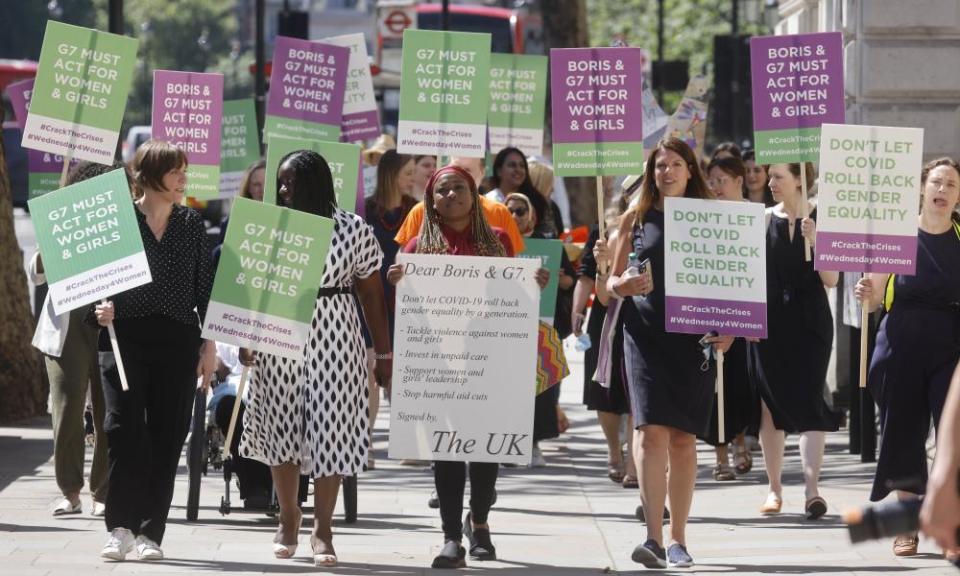Marcus Rashford is ‘playing politics’? That’s great – he’s better at it than politicians

The accusation that someone is “playing politics” has become a regular slur among my political opponents. Most recently, Natalie Elphicke, who succeeded her husband as MP for Dover while he was under suspicion of sexual offences, accused Marcus Rashford of “playing politics”, suggesting that his desire to speak up about hungry schoolchildren had harmed his football skills and taken his eye off the ball.
The suggestion here is, of course, that politics is solely the pursuit of politicians and that when other people get involved, they are merely acting out a childish game. In fact, Rashford plays politics considerably better than Elphicke, because unlike her, he has led campaigns that galvanised a million people and changed government policy, and has a direct line to the prime minister. I’ll wager he is also better at kicking a ball. Two nil to Rashford.
However, the accusation is not only made against ordinary voters. If I, an elected representative, talk about the case of a murdered woman, I am told that I am “playing politics” with the tragedy. To some, I am not considered a professional on the political playing field. I am the wrong sort of politician. I have been accused of peddling student politics, in an attempt to patronise and sideline me. I have also been told that, unlike the very important ministers, I am led by my heart, whereas proper grownup politicians have to think with their heads.

Playing politics is an accusation made in order to diminish your voice and make you feel stupid, as if you have made some sort of terrible political faux pas. You haven’t. Politics is for everyone and there is nothing good that ever happened in our country that was not conceived of, fought for and activated by ordinary citizens. Women having the vote, universal child benefit, the Race Relations Act, even the weekend was first conceived of in some draughty hall by ordinary people. Politicians like me don’t come up with our campaigns ourselves, they come from the stories we are told in our constituencies. If ordinary people didn’t dare to think that they could change things, politicians would have nothing to play with.
It is often young change-makers, such as Rashford, Greta Thunberg and Malala Yousafzai who are accused of playing politics.
“Its not personal, it’s just politics” is another well-trodden and ridiculous platitude. Everything about politics is deeply personal to all our lives. When we speak up we are not playing a game, we are asserting our liberty and our rights. The food we eat, the clothes on our backs and where they came from, who we can love and how we can love them: every single tiny thing in our lives will have been debated and decided in the Palace of Westminster. The womb I lug around this grand building – with its gargoyles and gilding – is regularly up for political debate. That feels pretty personal to me when I listen to a load of men debating what I can and can’t do with my internal organs.
We disempower the public by making out that politics and all its funny terminology and tradition is for a special gang who are in the know. We make out as if only the very best can make it to parliament when in reality there are literally no qualifications required. We tell people who dare to campaign that they are “playing politics” and then when we are forced to listen to them because they are better at it than those paid to play the game, bad politicians take credit for enacting the resulting positive changes.
We make out as if only the very best can make it to parliament when in reality there are no qualifications required
It is hard at times to convince people that organising or attending meetings and events to push forward their ideas or campaigns is anything more than a slog that, at least at first, will probably be ignored. People are busy, they have bills to worry about, box sets to watch. When Rashford set out to feed the nation’s children, he could have been doing something else more fun, or at least more in his comfort zone. With a premiership footballer’s platform, he had an easier run at it than others, but I have absolutely no doubt that he had a crisis of confidence about using his voice, that he thought more than once that he didn’t understand politics enough to get involved.
Related: Marcus Rashford: the making of a food superhero
What Rashford knows now, though, is that all of the fears and self-doubt, the tedious meetings, the crushing abuse and misdirection pales into insignificance when your voice is heard. The feeling of taking part in politics and actually changing something is like fireworks in your chest, it’s like kicking the ball straight into the back of the net while your team leap on you in victory. If more people knew what a political win felt like, everyone would want one.
So let’s play politics, because it’s personal to each and every one of us, and if we don’t, the same people will always win, while using your jobs, your education and your internal organs as the counters in their game.
• Everything You Really Need to Know About Politics by Jess Phillips is published by Simon & Schuster (£16.99). To support the Guardian and the Observer buy a copy at guardianbookshop.com. Delivery charges may apply.


